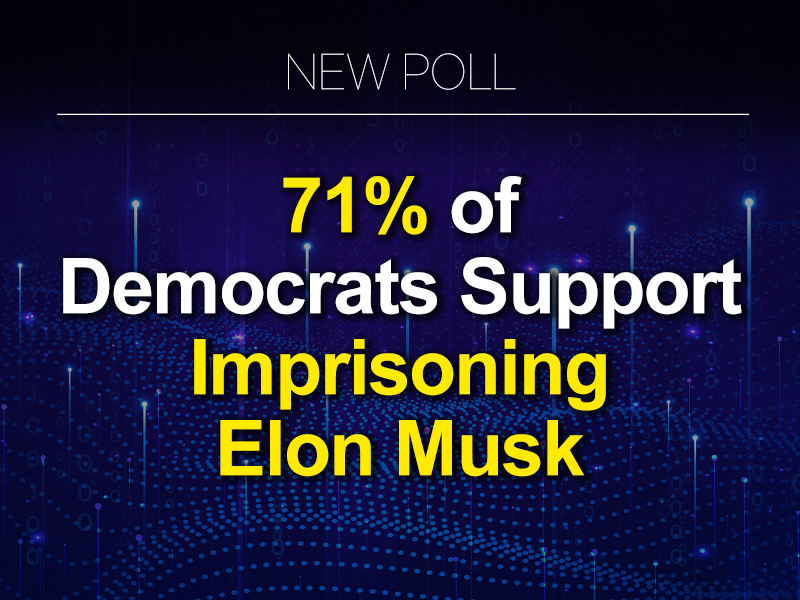The debate over the expansion of online gambling in the states continues to move forward while Congress considers the Restoration of America’s Wire Act, which would reverse a 2011 interpretation by the U.S. Department of Justice that ruled section 1084 of the Wire Act of 1961 applied only to sports betting. That gave states the opportunity to legalize certain forms of online gambling such as online poker. Delaware, Nevada, and New Jersey enacted legislation legalizing online gambling, and several other states, including California, Colorado, and Illinois, also have been considering legalization.
Opponents of online gambling say the prohibition protects vulnerable members of society (the poor, elderly, and youth). They also say legalization would hurt brick-and-mortar casinos and state-run lotteries.
Proponents of allowing states to legalize online gambling argue the Restoration of America’s Wire Act would undercut states’ autonomy. A letter from the National Conference of State Legislatures (NCSL) argues, “States have proven that they are effective regulators of the gambling industry and the proponents of this legislation fail to make a case that we have been negligent in our responsibilities to the industry and consumers. This attempt to enact a wholesale prohibition of online gambling with the Restoration of America’s Wire Act is merely a solution seeking a problem.”
Those who support allowing states to legalize online gambling also note the prohibition opens the door to black markets. Gambling sites that are unregulated can more easily prey on consumers without any legal recourse available to those who are cheated. The prohibition is extremely expensive and difficult to enforce and has proven to be an exercise in futility. For the most part, the prohibition protects only a select few domestic gambling operators, while causing states to lose out on large potential tax revenues from the industry. Morgan Stanley has estimated global online gambling may be worth $8 billion a year, and some estimates run as high as $30 billion.
Many states already regulate gambling and should be allowed to make their own choice as to whether to allow online gambling. Doing so would bring in considerable tax revenue to the states, increase competition in the domestic gambling industry, and provide consumers with safe and reliable online gambling options.
The following articles examine online gambling regulations from multiple perspectives.
NCSL Letter In Opposition to the Restoration of America’s Wire Act
http://www.ncsl.org/research/financial-services-and-commerce/ncsl-opposition-to-the-restoration-of-america-s-wire-act.aspx
The National Conference of State Legislatures wrote a letter to federal lawmakers conveying its opposition to the Restoration of America’s Wire Act bill. NCSL outlines why states, not the federal government, should be responsible for deciding how to regulate online gambling.
Online Gambling Tax Could Hit the Jackpot
http://heartland.org/policy-documents/online-gambling-tax-could-hit-jackpot
Policy analyst Eli Lehrer argues social opposition to online gambling legalization is dead, and he says states should begin permitting and regulating the practice. He notes online gambling is already occurring in the United States, as Native American casinos create websites outside of federal jurisdiction. To ensure these and future websites are free from fraud, the federal government should regulate online gambling and collect tax revenues to pay for this service.
“The State of Online Gaming”: Written Testimony of Geoff Freeman
http://democrats.energycommerce.house.gov/sites/default/files/documents/Testimony-Freeman-CMT-Online-Gambling-2013-12-10.pdf
Geoff Freeman, president of the American Gaming Association, testified before the U.S. House Subcommittee on Commerce, Manufacturing, and Trade on the problems of federal regulation of the online gambling industry. Freeman argues the best protection for U.S. consumers against unreliable offshore operators is strong and effective regulation that respects states’ rights.
A Safe Bet: Online Gambling’s Good for U.S.
http://www.cato.org/publications/commentary/safe-bet-online-gamblings-good-us
Patrick Basham, a former adjunct scholar for the Cato Institute, describes the unnecessary and harmful impact of federal regulation of the online gambling industry. Gambling is one of the great successes of online commerce, he states, and the online gambling industry is merely another form of commerce where prohibition is the wrong option.
As Moral Criticism Fades, What’s Holding the US Back on Internet Betting
http://www.theverge.com/2013/6/19/4444738/online-gambling-haters-mellow-out-but-federal-law-still-hung-up-on-special-interests
Despite increasing acceptance of online gambling in individual states, a federal legalization bill is unlikely to pass, Adrianne Jeffries argues. There are too many special-interest groups on each side to move a national bill for or against online gambling. Some casinos, entertainment groups, and civil rights advocates support legalization, while other casinos, traditional values groups, and the National Football League are among the opponents. National legalization may be possible only in the distant future after widespread acceptance by the states.
Global Gaming Outlook: The Casinos and Online Gaming Market to 2015
https://heartland.org/publications-resources/publications/global-gaming-outlook
The world’s largest accounting firm, PricewaterhouseCoopers, provides a detailed projection of online gaming trends over the next few years. The firm projects strong growth in the industry, especially in Asia, but it notes the United States is still by far the largest source of online gambling revenues, at 49 percent of the global market in 2010. Regulation is considered to be one of the major hindrances for the industry, but the report suggests gambling regulations will erode in the United States and around the world in the coming years as the business becomes too large to suppress. Another major trend is the emergence of intense regional competition, the report notes.
Online Gambling: Tax Aspects
http://www.gambling-law-us.com/Articles-Notes/online-gambling-tax.htm
Gambling expert Chuck Humphrey reports on how online gambling is taxed in the United States, noting how confusing and vague online gambling taxes are today. Most online gamblers aren’t aware their income is technically taxable regardless of where the casino is located. Although the U.S. government has trouble keeping track of this income, audits could reveal it and lead to legal troubles for the gambler. It also can be difficult to deposit gambling earnings into a bank, especially if those earnings are not reported as income. The article shows how convoluted online gambling laws are today, and by extension, why states should reform these laws.
Internet Gambling: Prohibition v. Legalization
http://www.cato.org/publications/congressional-testimony/internet-gambling-prohibition-v-legalization?print
In 1998, Chapman University Professor Tom W. Bell testified before the National Gambling Impact Study Commission, stating federal prohibition of online gambling would not succeed. The Internet makes it possible to circumvent domestic policies through an international network, and the demand for online gambling would force legislators into legalizing it.
Nothing in this Research & Commentary is intended to influence the passage of legislation, and it does not necessarily represent the views of The Heartland Institute. For further information on this and other tax topics, visit The Heartland Institute’s Web site at http://heartland.org, Economy News at https://heartland.org/topics/economy/index.html, and PolicyBot, Heartland’s free online research database, at www.policybot.org.
If you have any questions about this issue or The Heartland Institute, contact Heartland Institute Government Relations Coordinator Alex Monahan at 312/377-4000 or [email protected].


